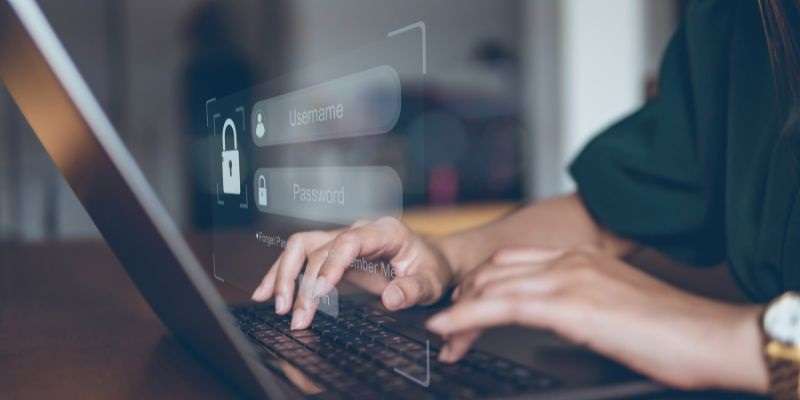BankIowa
Updated 9:31 AM CST, Tue January 7, 2025
Published Under: Fraud Prevention & Security

In our digital world, protecting your personal information has never been more critical. Identity theft and fraud are growing concerns, with cyber criminals constantly devising new ways to steal sensitive data and exploit unsuspecting individuals. This blog aims to provide you with essential tips and strategies to safeguard your identity and financial well-being. By understanding the common tactics used by fraudsters and implementing proactive measures, you can significantly reduce the risk of becoming a victim of identity theft and fraud.
The Common Tactics
To effectively safeguard your identity and financial information, it’s crucial to understand the common methods used by fraudsters. Phishing scams, for example, often involve deceptive emails or messages that appear to be from legitimate sources, tricking you into providing personal information. Another prevalent tactic is skimming, where devices are placed on ATMs or point-of-sale terminals to capture your card details. By being aware of these schemes, you can stay one step ahead and avoid falling victim to such fraudulent activities.
Steps to Protect Yourself
Implementing some practical measures can significantly enhance your protection against identity theft. Some steps to consider are:
- Monitor Your Accounts Regularly
- Frequently check your bank and credit card statements for any unauthorized transactions.
- Use Strong and Unique Passwords
- Create complex passwords for your online accounts and avoid using the same password across multiple sites.
- Do not store your passwords on your cell phone.
- Enable Two-Factor Authentication or Biometric Authentication
- Add an extra layer of security by requiring a second form of verification when logging into your accounts.
- Biometric security uses facial recognition or your fingerprint to authenticate you for transactions.
- Be Cautious with Personal Information
- Avoid sharing sensitive information over the phone or online unless you are certain of the recipient’s identity, or you initiated the call.
- Remember, when you're on the phone with BankIowa, we will not ask for your username or password.
- Beware of suspicious text messages and any links in the messages. Fraudsters will try to get you to respond with personal information or click on links which can scan your mobile device for personal information.
- Never sell a personal computer or mobile device that ever stored financial information without completely wiping/resetting it.
- Shred Sensitive Documents
- Dispose of documents containing personal information securely to prevent dumpster divers from obtaining your data.
- Shred credit card offers that come to you in the mail.
- Keep your Debit and Credit Cards Safe
- Make sure to always get your card back after making a purchase.
- When using a credit card at a restaurant or store, make sure all lines of the receipt are filled in or marked through so no one can change the final amount.
- Only travel with the card(s) you plan to use.
- Instead of carrying your credit and debit cards around, set up a digital wallet on your mobile device.
- Set up alerts for your cards when transactions hit specific thresholds.
Stayed Informed of the Latest Tactics
Staying informed about the latest trends in identity theft and fraud can help you recognize potential threats. You can keep up with the latest scams and threats at consumer.ftc.gov. Also consider subscribing to alerts from your financial institutions and enrolling in other identity theft protection services. These services can monitor your credit reports and alert you to any suspicious activity, providing an added layer of security. By combining these proactive measures with vigilance, you can create a robust defense against identity theft and fraud.
Staying vigilant and informed is your best defense against identity theft and fraud. By regularly monitoring your accounts, using strong passwords, and being cautious with your personal information, you can protect yourself from the growing threat of cybercrime. Remember, taking proactive steps today can save you from significant headaches and financial loss in the future. Stay safe, stay secure, and always be aware of the latest tactics used by fraudsters in order to keep your identity and finances protected.

Comments